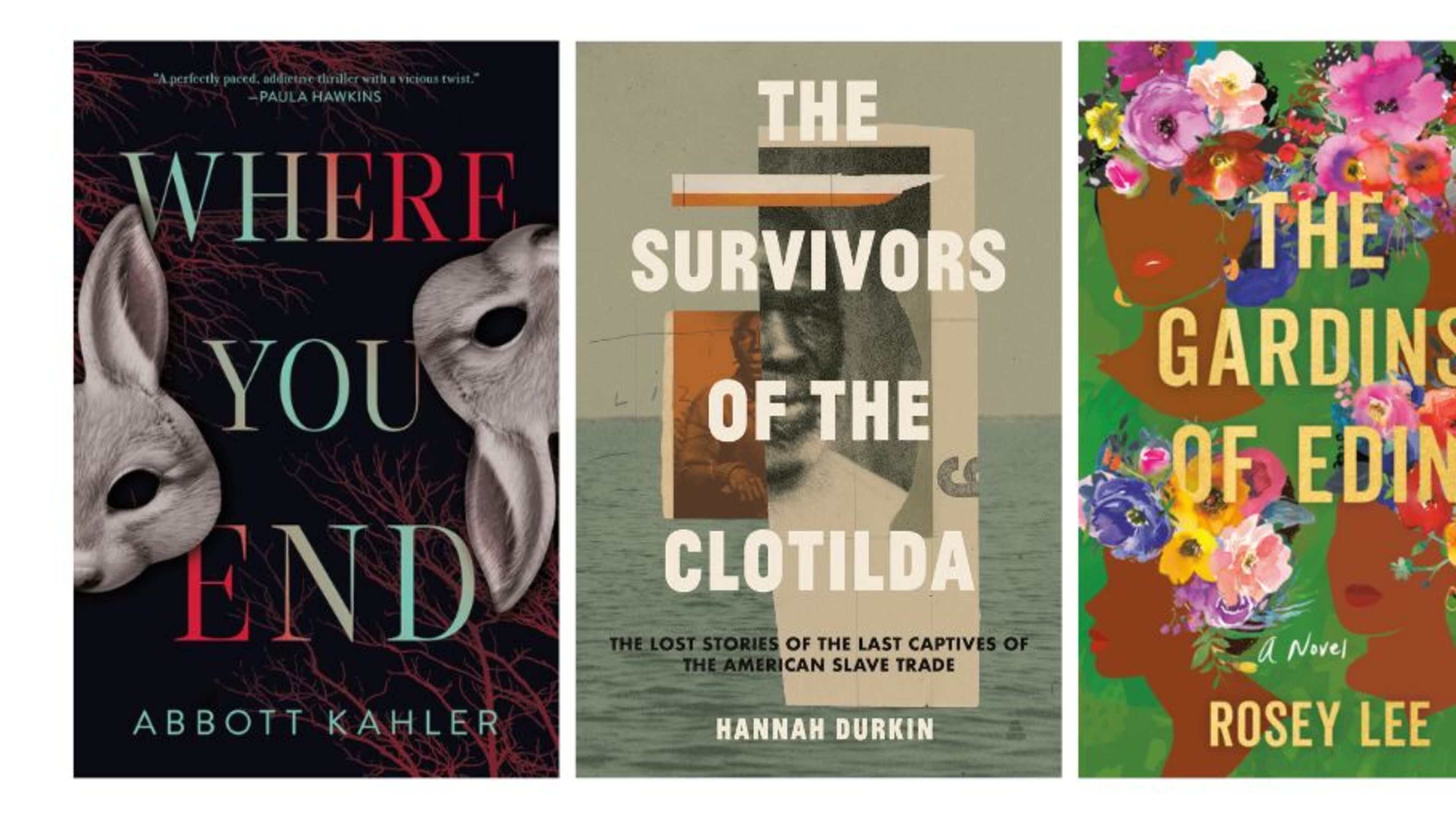Bookshelf: 3 books to read this January

This week’s Bookshelf takes a look at three very different new books coming out in January.
Seeing double. New York Times bestselling author Karen Abbott is a former Atlantan who has a successful career publishing creative nonfiction accounts of historically significant women, many of them considered scandalous by polite society. Past books include “Liar, Temptress, Soldier, Spy,” about the creative subterfuge women on both sides of the Mason-Dixon line used to sway the outcome of the Civil War, and “American Rose,” about the Jazz Age stripper Gypsy Rose Lee.
Now writing under the name Abbott Kahler, she makes her fiction debut with the novel “Where You End” (Henry Holt & Co., $27.99) on Jan. 16.
Although technically a thriller, “Where You End” goes for more of a creepy, slow burn than action-packed twists and turns. It opens with a car wreck involving Kat and Jude Bird, who are 22-year-old mirror twins – that means their fused embryos separated late in gestation, making them identical opposites; they look exactly the same, but where one is left-handed, the other favors her right, etc.
Jude survives the accident without a scratch, but Kat suffers a severe head injury. While she recognizes Jude as her sister, Kat can’t remember anything about her life. It falls on Jude to slowly reconstruct Kat’s memory of their idyllic childhood, which was marred by the disappearance of their brilliant father and their mother’s death in an automobile accident. Eventually, though, Kat begins to think Jude isn’t telling the whole truth about their past. As she seeks answers, Kat contends with a budding new romance, unexpected outbursts of anger and the growing fear that someone is following her.
Kahler will be in conversation with Joshilyn Jackson, author of “With My Little Eye,” at 1 p.m. Feb. 3 at Foxtale Book Shoppe in Woodstock. Book purchase required. For details, go to foxtalebookshoppe.com.
Family friction. Another author playing the name game is Rosey Lee, which is the pen name for an Atlanta physician who makes her literary debut Jan. 9 with “The Gardins of Edin” (WaterBrook Books, $17). The novel is not overtly religious, but as the name suggests, there are Christian undertones.
Set in the fictional town of Edin in South Georgia, four women whose characters are patterned after their Biblical namesakes live in separate homes on a family compound. Ruth is a widow who has inherited the responsibility for running her husband’s family’s peanut business. She is emotionally tethered to, but also intimidated by, her mother-in-law Naomi. Rounding out the quartet are Naomi’s nieces Mary and Martha, who make Ruth feel like an interloper in their family. Tensions mount between the women as they struggle to navigate their future regarding the family business, health scares and romance.
Charis Books & More presents Lee in conversation with Ruth P. Watson, author of “A Right Worthy Woman,” 7 p.m. Jan. 9 at the Auburn Avenue Research Library. For details go to charisbooksandmore.com. It will also be livestreamed on the library’s Facebook page.
Last slave ship. Clotilda, the last known vessel to transport enslaved Africans to the U.S. in 1860, was discovered in the bottom of the Mobile River in 2018, and since then a flurry of books on the topic have been published. There was “The Last Slave Ship” by Ben Raines, the journalist who found the ship’s remains. “Africatown” by Nick Tabor examines the community created by survivors and their descendants. “Barracoon” is Zora Neale Hurston’s posthumously published portrait of Clotilda survivor Cudjo Lewis based on her interviews with him in 1927.
It’s a testament to how endlessly fascinating this subject matter is that there appears to be no slowdown in sight. Next up is “The Survivors of the Clotilda” (Amistad, $29.99) by Hannah Durkin, publishing Jan. 30.
An English scholar in American studies, Durkin traces the Clotilda’s 110 captives from their kidnapping in what is known today as Nigeria to their harrowing 45-day journey across the Atlantic Ocean. It charts their sale into slavery, the Civil War, the foundation of Africatown, the birth of the civil rights movement and the establishment of the quilting community of Gee’s Bend.
It is a deeply researched account, evidenced by the book’s 115 pages of notes and bibliography, that focuses on the humanity at the heart of a contemptible low point in our country’s history.
Suzanne Van Atten is a book critic and contributing editor to The Atlanta Journal-Constitution. You can contact her at Suzanne.VanAtten@ajc.com

